In today’s post, we will be sharing the differences between a diffuser vs humidifier and the purpose and benefits of each one. Many people don’t know what differentiates them, so I decided to do this post. The products can look alike, but a few essential things differentiate them.
Diffuser vs Humidifier – What is The Difference?
Diffuser
Diffusers have one primary purpose – evaporating and releasing fragrant essential oils into the air. Diffusers, unlike humidifiers, do not hold enough water to impact the humidity level in the room. If you simply want to release fragrance in the air, then a diffuser is your best bet. There are many different types of diffusers which include:

Types of Diffusers
Fan-style diffuser – you don’t add water to this type of diffuser. Essential oils of your choice are added to an absorbent pad, and a fan is blowing gently over it to release the fragrance through the room. Fan-style diffusers are easily cleaned and can last for prolonged periods, depending on the size of the pad and the availability of essential oils.
Terracotta diffuser – these diffusers are made from eye-pleasing clay pots and have a closed top. The oil permeates the clay pot, releasing the fragrance throughout the room. It takes a while for the scent to be released, and cleaning the device takes effort and care to avoid breaking the pot.
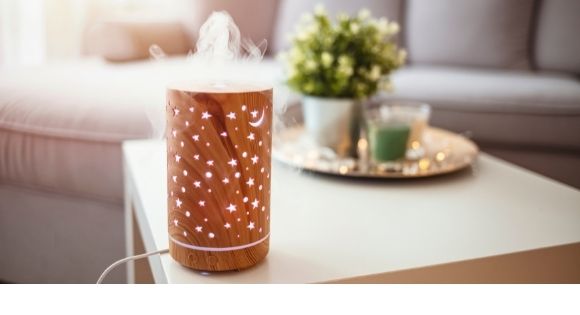
Electric/Evaporating heat diffuser – essential oil is added to a small cup, after which electricity is used to heat it up and release the wonderful aroma into the air. These diffusers are easy to clean with water and mild soap.
Reed diffuser – this is a basic type of diffuser. Wooden reeds are placed into a bottle with your choice of essential oil. The oil is then absorbed from the bottom through the reeds, releasing the scent into the air. No mist is produced, and the smell lingers for as long as oil is in the bottle.
Candle diffuser – this type of diffuser works the same as an electric diffuser, except the candle is the heat source instead of electricity. These diffusers come in various styles and require constant monitoring to replace the candle once it burns out.
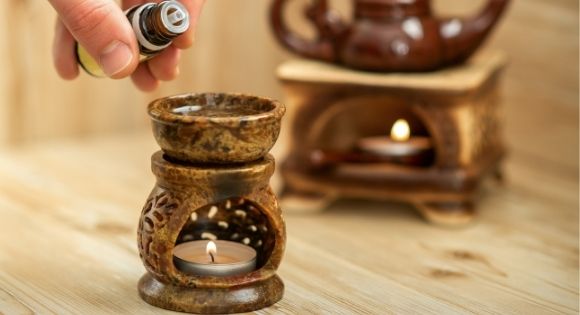
Nebulizing diffuser – with a nebulizing diffuser, the fragrance is quickly dispersed into the air. It can be frustrating to clean the device as it is time-consuming.
Ultrasonic diffuser – Ultrasonic diffusers break down a mixture of water and essential oils to create a fine mist that is released into the air. These diffusers typically have automated features like auto mode, timer, and auto-shutoff.
PROS of Diffusers
- Enhancing respiratory health, offering relief for commonplace symptoms like lowering the effect of coughs and colds and inflammation in your respiratory tract and opening your nasal passages.
- Removing unpleasant odor by releasing the fragrant aroma of essential oils into the air.
- Boosting your immune system through antiviral and antibacterial health advantages from inhaling certain essential oils when released into the air.
- Acting as a natural insect impeller – some insects cannot tolerate the smell of diffused essential oils.
CONS of Diffusers
- Allergies – people prone to allergies might find the aroma of certain essential oils to be a trigger.
- Skin irritation – using diffusers for prolonged periods might cause skin irritation due to the accumulation of essential oil residue on the skin’s surface.
- Asthmatic reactions – using diffusers excessively might trigger asthmatic reactions in sufferers.
- Not advisable for pregnant women – always check with your doctor or health professional before using a diffuser. The possible health effects of using a diffuser when pregnant are relatively broad, and it could negatively affect the mother and baby’s skin.
Humidifier
Humidifiers are used primarily to add moisture to the air to raise humidity. Just like diffusers, there are various types of humidifiers available.

Types of Humidifiers
Central humidifier – the device is connected to your home’s HVAC system and is the priciest type of humidifier but the most effective. It can be used as a heater or air conditioner.
Evaporating humidifier – this type of humidifier heats up the water until it reaches evaporation, after which the moisture escapes through a filter and is dispensed into the air. It can generate a lot of moisture, and cleaning can be time-consuming.
Impeller humidifier – the humidifier has rotating discs which spin at a high rate. Water is broken down, and mist is released into the air. This humidifier is child and pet-friendly with zero risk of inflicting harm.
Steam vaporizer – the device works with electricity, heating water and letting it cool down to release mist into the air. They are portable and relatively affordable but could lead to skin burns if not used appropriately.
Ultrasonic humidifier – the unit uses vibrations, breaking down water until mist is formed and dispensed into the air. You can buy them in both warm or cool mist variations.
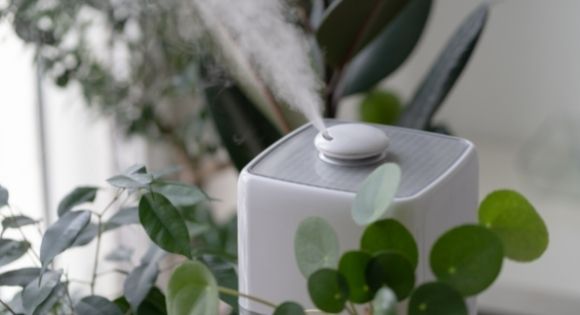
PROS of Humidifiers
- Preventing infections as it eradicates low moisture from your environment.
- Protecting furniture – areas with low moisture can cause furniture to become brittle or crack over time. A humidifier can actually increase the life span since it keeps the air moist.
- More comfortable overall – with the humidity levels where it should be, you can live more comfortably with less static electricity on clothing and prevention of a blocked nose.
CONS of Humidifiers
- They require frequent maintenance to prevent mold accumulation.
- A humidifier can have the opposite effect due to contamination if not maintained properly.
- They can be quite noisy, which can be a source of irritation for some.
- When incorrectly set the humidifier can cause an issue of over condensation or humidification, subsequently leading to bacteria growth and mold that is harmful to one’s health.
Conclusion
I hope you have enjoyed my post about diffuser vs humidifier. Both devices serve a unique purpose and it all boils down to what you need or want. If you prefer a lingering fragrance, then a diffuser is ideal. If you want to add moisture to the air, a humidifier is just the thing. If used correctly, both devices can be beneficial and an asset to any home.
Sending you lots of light, love, and fragrant healthy vibes.
Anthea

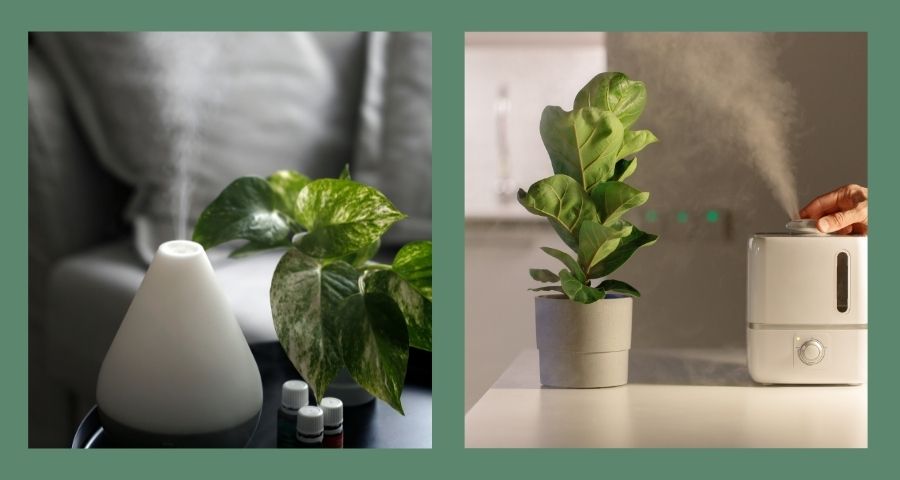
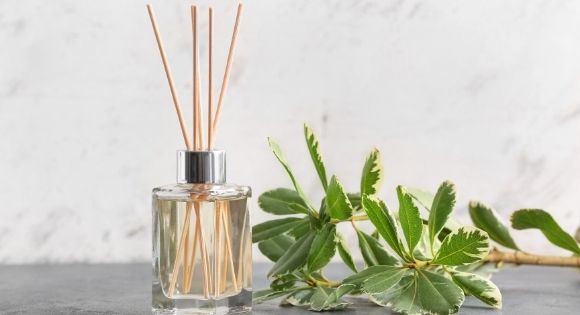

Diffuser vs Humidifier – What is The Difference?” is a valuable article that clarifies the distinction between these two commonly confused devices. Your explanations of how each works and their respective benefits are enlightening. It’s a useful resource for anyone looking to make an informed choice between a diffuser and a humidifier for their specific needs, whether for aromatherapy or improving air quality. Thanks for simplifying this important decision with your informative content.